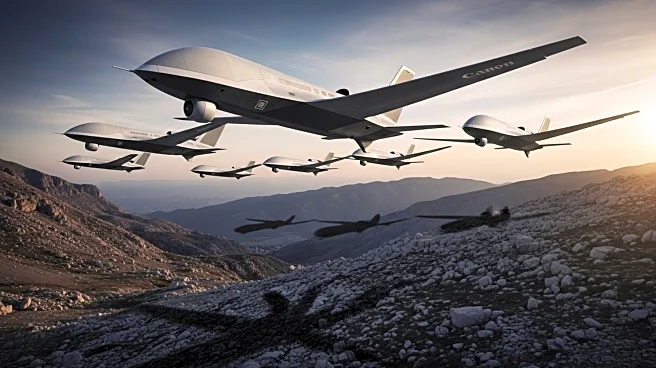What's Happening?
Russian President Vladimir Putin and Chief of the General Staff Army General Valery Gerasimov have reiterated their commitment to a war of attrition against Ukraine. Putin claimed there are over 700,000 Russian soldiers on the frontline, while Gerasimov stated that Russian forces are advancing on 'practically all fronts.' This strategy assumes Russia can outlast Western support for Ukraine and achieve its war goals through gradual advances.
Why It's Important?
The ongoing conflict between Russia and Ukraine continues to have significant geopolitical implications. Russia's strategy of attrition aims to exhaust Ukraine and its allies, potentially altering the balance of power in Eastern Europe. The situation impacts global energy markets, as Russia's economy relies heavily on oil exports. The conflict also influences international relations, with the U.S. and other Western nations supporting Ukraine, affecting diplomatic and economic ties with Russia.
What's Next?
The Kremlin's commitment to its original war aims suggests continued military operations in Ukraine. The international community may respond with increased sanctions or diplomatic efforts to pressure Russia into negotiations. The conflict's duration and intensity could lead to further destabilization in the region, affecting global security and economic stability.
Beyond the Headlines
Russia's strategy raises ethical and humanitarian concerns, as prolonged conflict results in significant casualties and displacement. The war's impact on civilian populations and infrastructure highlights the need for international humanitarian aid and support. The situation also underscores the challenges of resolving complex geopolitical conflicts through diplomatic means.










